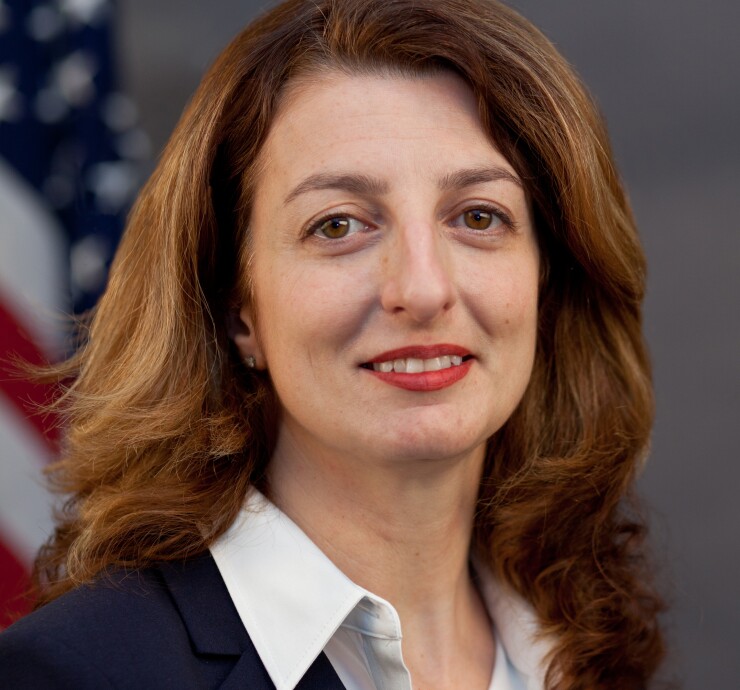
WASHINGTON — The Securities and Exchange Commission on Monday filed securities fraud charges against a nonprofit charter school operator in Chicago for misleading investors of $37.5 million of bonds about conflicts of interest that could have jeopardized the ability to pay debt service.
The charges against the UNO Charter School Network, Inc. and United Neighborhood Organization of Chicago (UNO), which revolve around an undisclosed $11 million contract entered into with a windows company owned by the brother of one of the senior officers in connection with school construction, were filed in a U.S. district court in Chicago on Monday. The conflict of interest violated requirements pertaining to grants that had been obtained for the three schools being financed, which could have caused the grants to be withdrawn, thereby threatening project finances, including the bonds.
UNO, which neither admits nor denies the charges, wants to settle them by agreeing to an injunction against engaging in any further "conflicted transactions" and by paying up to $100,000 to hire an independent monitor to detect and prevent other conflicts of interest.
The U.S. District Court for the Northern District of Illinois, Eastern Division, must approve the settlement.
SEC officials said the case shows the importance of making accurate disclosures to investors.
"Conflicted transactions and self-dealing by issuer officials can be material for municipal bond investors and should be given appropriate focus by issuers and underwriters in disclosure documents," said LeeAnn Gaunt, chief of the SEC's enforcement division's municipal securities and public pensions unit. "Failing to disclose material information undermines investor confidence in the municipal securities market and places at risk an important sources of funding for local government projects."
In this case, the SEC did not charge the issuer — the Illinois Financing Authority — because it was merely the conduit issuer and UNO did not tell it about the conflicts of interest.
The $37.5 million of charter school refunding and improvement revenue bonds were issued in October 2011 and were payable solely by UNO. The primary security for the bonds is the the per pupil revenues UNO receives for operating the schools, including those partly funded with the grants.
The official statement assured investors that UNO had a robust "conflicts policy" and that it had entered into a contract with a company owned by a brother of the then-senior vice president and chief operating office to serve as the owner's representative during construction. The company was to be paid $1.9 million.
However, the OS did not disclose that in 2011 and 2012 UNO had hired a windows company owned by a brother of the COO to supply and install windows for a total of about $11 million.
The OS also failed to disclose that the conflicts of interest breached provisions of grant agreements UNO had with the Illinois Department of Commerce and Economic Opportunity. UNO had received two grants totaling $98 million in June 2010 and November 2011 to help finance the construction of the three schools. Each grant contained a provision that the IDCEO be notified of any conflicts of interest that arose. It it was not informed, it could suspend grant payments and recover grant funds already paid.
"UNO misled its bond investors by assuring them it had reported conflicts of interest in connection with state grants, when it had not," said Andrew Ceresney, director of the SEC's enforcement division. "Investors had a right to know that UNO's transactions with related persons jeopardized its ability to pay its bonds because they placed the grant money that was primarily funding the projects at risk."
On Feb. 4, 2013, the Chicago Sun-Times published an article alleging UNO violated provisions of the grant agreements. Later that month, UNO disputed those charges but decided to terminate it's COO, suspend the smaller contract that had been disclosed, and retain a retired federal judge to spearhead an audit.
On March 27, 2013, UNO hosted an investor call regarding its previous year's financial results. During the call, a representative from Prudential asked UNO why it had entered into both contracts since most charter schools prohibit conflicts of interest. In response, UNO's chief executive officer falsely stated there were no conflict guidelines in the grant agreements and that the contracts were not prohibited.
On April 25, 2013, IDCEO notified UNO that it was temporarily suspending the grant payments.
SEC officials said their "investigation is continuing," but would not elaborate. However, SEC chairwoman Mary Jo White and other commissioners have emphasized in recent months that they want the enforcement staff to hold more individuals, as well as firms, accountable for securities violations.





